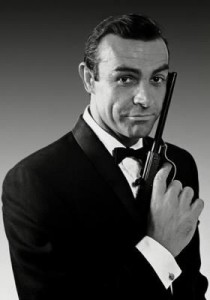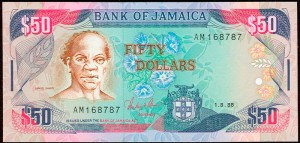If you have ever visited Jamaica, there is a good chance that at some point you found yourself in a van driven by a Jamaican driver. In that affable and jocular way common to many Jamaicans, your driver probably pointed out interesting spots along the way. And since you probably flew into or docked in Montego Bay or Falmouth, there is a good chance that your driver pointed out a spot on the north shore where they filmed scenes from a couple of James Bond movies.
That is what happened to me. I have visited Jamaica twice with church members and Malone students on ministry trips. Two different years, two different drivers, but both mentioned the James Bond movies. That’s why I think James Bond movies were probably mentioned to you when you visited Jamaica. Or will be, if you ever visit Jamaica.
OK, I admit this is a terribly unscientific survey of what Jamaican van drivers usually say. It is a terribly unscientific way to determine what probably happened to you if you ever visited Jamaica. And it is a terribly unscientific way to predict what will happen to you if you visit Jamaica some day. But I needed an opening hook for this blog series. And, anyway, I am still convinced that visitors are likely to hear about James Bond, even though this conviction is terribly unscientific.
Here is what struck me: neither driver mentioned Samuel Sharpe. You will find Samuel Sharpe on the Jamaica currency, you will find his face painted on the walls of many Jamaican primary schools, and you will find that the Jamaican government considers Samuel Sharpe to be one of their national heroes.
OK, so who is this Samuel Sharpe guy, you may ask? And if you didn’t ask, you should, because unless you attended a primary school in Jamaica (a demographic that my blog has not reached in large numbers, for some reason) you probably don’t know who he is.
Briefly: Samuel Sharpe was a slave and a Baptist preacher in Jamaica in 1831, when Jamaica was a British colony. He organized a rebellion against slavery, primarily by working through the Baptist and Methodist church networks, which is why the rebellion is sometimes called the Baptist War. The rebellion was put down, Sharpe was captured, and he was hanged. However, the rebellion played a key role in British politics and the abolition cause, which produced the Abolition of Slavery Act in 1833, which abolished slavery in all the British colonies. That’s the short story. More details will emerge in posts that follow.
It is apparent to me that Jamaican van drivers know about Samuel Sharpe. But Jamaican van drivers also depend upon the tourist business for their livelihood. They will point out spots and talk about things that they have found to be of interest to tourists. That means that the decision to mention James Bond and not Samuel Sharpe is driven by what visitors want to hear.
Now, I think it would be interesting to hear about both. But I also wondered this: if visitors to Jamaica are going to hear about only one of these guys, which one should they hear about?
That brings us to my next blog series: a showdown between James Bond and Samuel Sharpe. We’ll set them up against each other in a head to head competition, battling it out in a number of categories to determine the answer to this question: which one should we be most interested in?
Stay tuned.



Pingback: James Bond vs. Samuel Sharpe: The Cool Factor | The Circuit Reader
Fascinating. Yes, I’ve never heard of Sharpe, but I am now interested in his role in the abolition of slavery. Thanks, Jay.
Pingback: rimonabantexcellence site title
Pingback: propecia